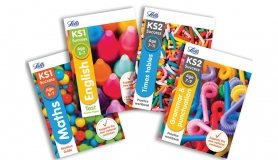Food for bees
Since the 1960s some species of bumblebee have declined by 95%, mainly due to the widespread loss of wildflowers in the countryside. These creatures are responsible for pollinating our plants and are essential to the eco system. Natural England are asking gardeners to choose traditional cottage garden plants, rather than modern hybrids. There are 15 million back gardens in Britain – if we all grew bee-friendly flowers it would make a big difference. See naturalengland.org.uk for a list.
Plant a seed
Choose organic seeds to ensure that you garden is 100% organic. See organiccatalog.com or tamarorganics.co.uk. Gardenorganic.co.uk has lots of helpful facts sheets and advice on creating and maintaining a natural space without recourse to chemicals. For organic seedlings visit rocketgardens.co.uk and organicplants.co.uk.
Refuse Peat
Over 90% of peat bogs in this country have been damaged or destroyed – mostly in the last 50 years. Peat bogs are thousands of years old and help us to understand our climate and environment better. Many also support wildlife. Around 70% of peat use today is by gardeners as potting compost. Buy peat free compost and ensure that any plants you buy are supplied in peat free compost. Find out more through the RSPB at rspb.org.uk.
Precious water
Firstly get a water butt for collecting rainwater – we like rainwaterharvesting.co.uk. This is good for the health of your plants and more economical too. Plants thrive with rainwater rather than tapwater. After mowing, leave grass cuttings on the lawn. Best of all, dispense with the lawn and grow food instead. Mulch around plants using homemade compost and grow companion plants such as squash around the base of sweetcorn and beans to retain moisture in the soil. Try mineralised straw mulch from strulch.co.uk. Water early in the morning to stop it all evaporating or the leaves of sensitive plants getting burnt.
Bring in the Wildlife
There are a number of ways of increasing biodiversity. See wigglywigglers.co.uk
wildlifetrust.org or rspb.org.uk for ideas and events to help you lure more creatures into your outside space.
Light it up
Instead of electric lighting for parties and summer evenings why not fill all your used jam jars with tea lights for a really magical effect? If you choose to have lights in the garden look for solar powered ones. Green store thesolarcentre.co.uk has an excellent range of eco friendly lighting products.
Manage organic
When dealing with a pest infestation look to re-establish balance rather than killing living creatures. As a last resort try organic methods of control such as nematodes from Nemasy to combat slug or ant problems. These are safe to use on the lawn and in flower and veg beds where children and pets play. See nemasysinfo.co.uk for more information.
Decorate your space
Choose natural materials for your garden in order to avoid carbon intensive production and eventual disposal of plastics and other petroleum products. At fig1.co.uk there is a beautiful selection of green gardening goodies including recycled tyre baskets and trugs and coir pots.
Push Power
One petrol lawnmower generates as much pollution in an hour as driving a car for 100 miles. Get a manual mower instead. It may take a bit more elbow grease but mowing the lawn is a far pleasanter form of exercise than slogging down the gym. manualmowers.co.uk offer a range of hand powered equipment for lawns.
Cook right
Britons buy 60,000 tonnes of barbecue charcoal a year, 95% of which is imported mostly from unsustainable sources such as tropical forests and cleared mangrove swamps. A much better option is to buy barbecue charcoal made in the UK. You can find a list of Forest Stewardship Council-approved UK charcoal on their website. See also bioregional.com and dorsetcharcoal.co.uk
Enhance the soil
You can compost nearly all your waste food, garden waste (not weeds) and cardboard. You can build your own bin with a few pallets, or cut the bottom off an old bin. Lots of councils offer subsidised composting equipment. At the top end, greencone.com offer a solar powered bin for £68, which comes with an accelerator.
Look for FSC
If you are looking for play equipment or garden furniture try your local freegle.org first. Antique shops and local paper classifieds are another good place to look for secondhand goods. Avoid tropical hardwoods when buying new; teak and other hardwoods are fast disappearing. Make sure that any wood that you do buy is reclaimed or from sustainable forest. Arbor Vetum produce FSC certified products – see arborvetum.co.uk. Greenpeace published a Garden Furniture Guide in 2004 – read online at greenpeace.org.uk.
Contain It
You don’t need a garden to grow things – chillies, peppers, tomatoes and basil will all thrive on a sunny windowsill. And sprout seeds for fresh greens every day. If you have a patio or balcony you have even greater scope. A tray of salads and greens is a good use of space as they taste so much better freshly picked and salads in supermarkets are over packaged and expensive.
Green walls
mylittleeco.co.uk has a range of exterior masonry paints, whilst mikewye.co.uk stocks lime internal and external paints. Steer clear of creosote when treating fences or sheds; breathing in the fumes can cause stomach pains, convulsions and kidney problems. Creosote is soluble; it pollutes groundwater and takes years to break down. See greenbuild
ingstore.co.uk for alternative wood preservatives. Or plant a hedge instead of erecting a fence – a hedge can support a huge diversity of wildlife and also provide you with free food in the form of blackberries and hazelnuts for example.







